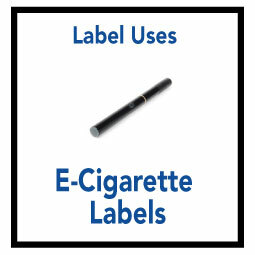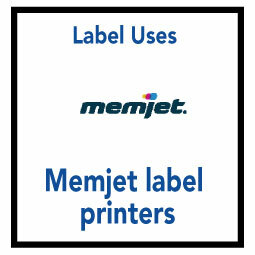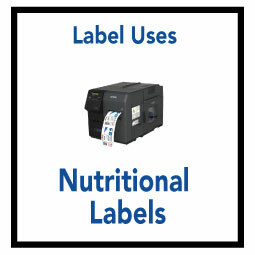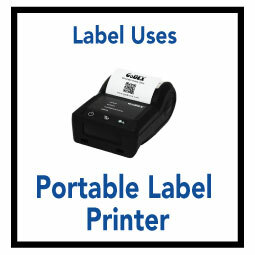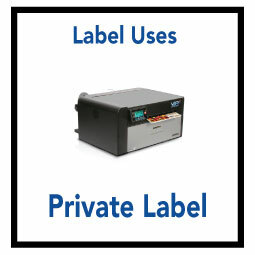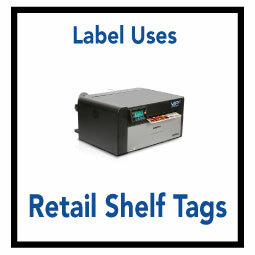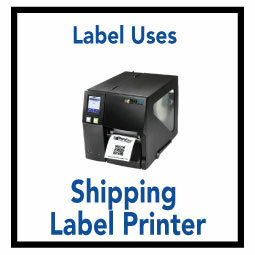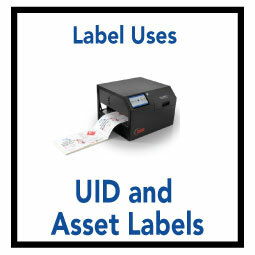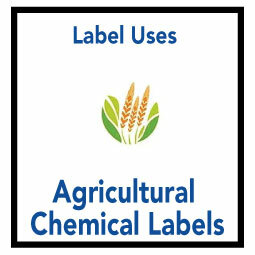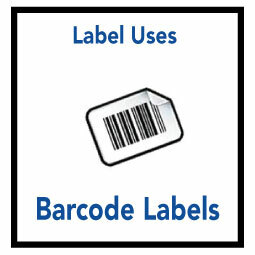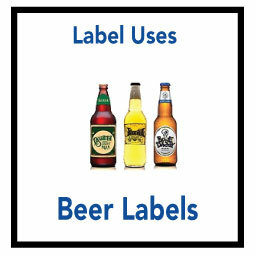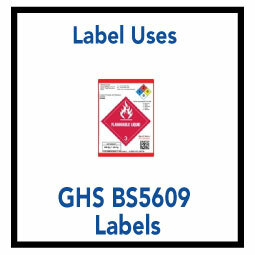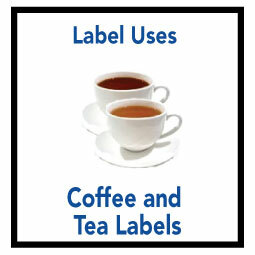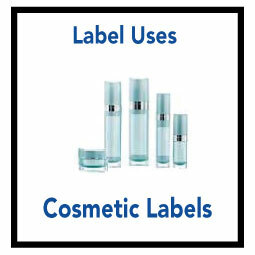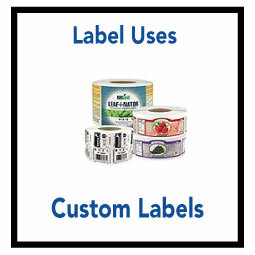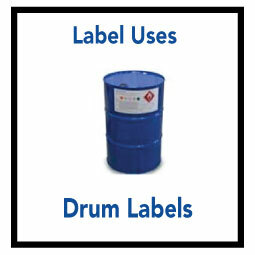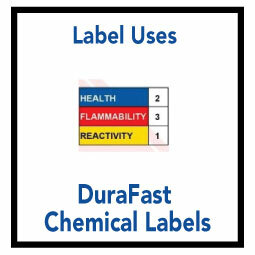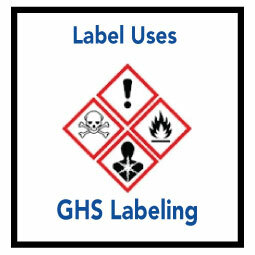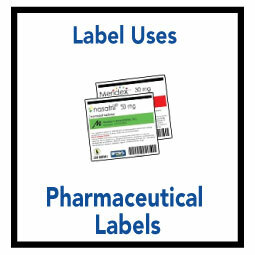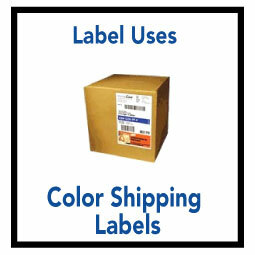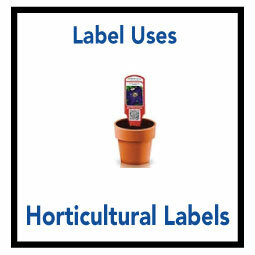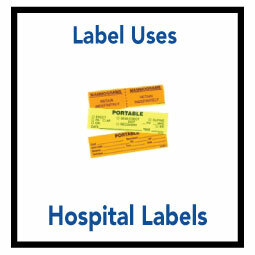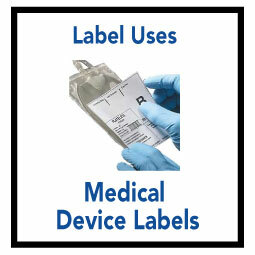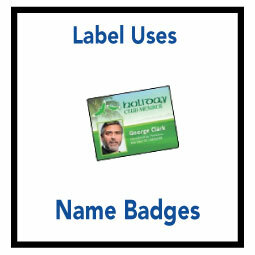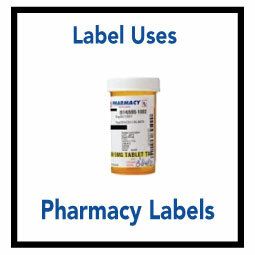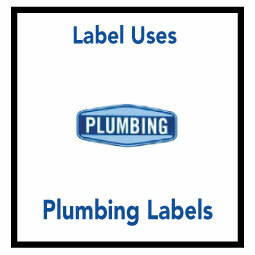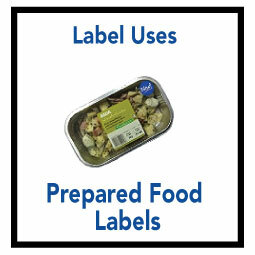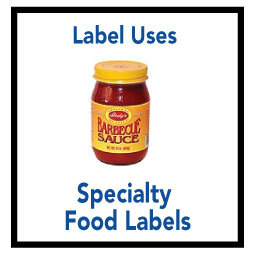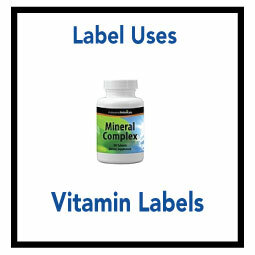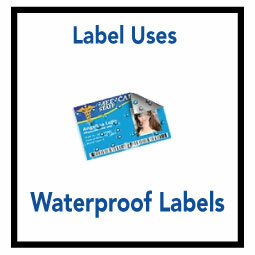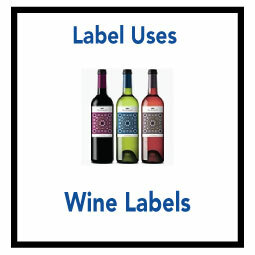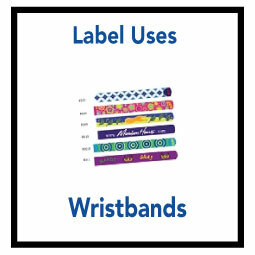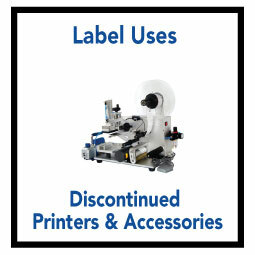Label Use Cases
Labels play an important role in any business and can be used in a variety of ways from product identification and inventory control to safety warnings and more. With this in mind, let's explore some of the uses for labels.
- Product labels — Product labels fall under the "prime" label category. These are attractive customer-facing labels that convey your brand and are usually printed in full color.
- Cosmetics labels — Cosmetic labels also fall under the prime category. Cosmetic products usually require ingredients lists and other regulatory information. Because they typically contain oils, synthetic label materials are recommended.
- Food and beverage labels — Food manufacturers use many different label types including nutritional facts labels, prepared food labels, and specialty food labels. Depending on the label type, a black and white or full color label may be required.
- Wine and beer labels - A type of prime label, wine and beer labels usually convey the brand, alcohol content, and information like vintage year, and grapes used in production. Water resistance is important as bottles are often placed in ice.
- E-cigarette labels — E-cigarette labels are generally small and resistant to vape fluids.
- Medical labels — Medical, laboratory, and pharmaceutical products usually require a label that's not only attractive but also durable and water resistant.
- Medical device labels — Medical device labels must comply with the country's regulations (such as FDA compliance in USA) to assure the devices are used safely and effectively.
- Medical packaging — Medical packaging includes cartons to transport medical supplies such as syringes or IV bags. They need to be water-resistant and durable enough to withstand impact in case they are dropped during transit.
- Hospital labels — From patient wristbands to visitors' badges and laboratory labels, hospital labels need to be durable, easy to print on demand, and adhere well in a variety of settings.
- Cannabis labels — Cannabis labels need to adhere to strict state and federal regulations. The use of color is generally used for warning statements rather than branding.
- Inventory labels — Inventory labels are usually applied to items, cartons, and pallets. They identify the product name or type as well as a batch number. Barcodes or RFID labels may also be included to help with inventory tracking.
- Agricultural labels — Agricultural labels are printed on seed bags, bale wrap, and other products like livestock identification. These labels need to be resistant to weather elements as well as chemicals used in farming.
- Shipping labels — Shipping labels provide shipment details, destination address information, tracking numbers, barcodes, and more. They are often printed with a thermal label printer.
- Barcode labels — Barcode labels provide accuracy and efficiency for routing, stocking, and tracking. They can be used on a variety of items like boxes or cartons as well as parts and tools in an assembly line.
- UID and asset labels — UID labels are used to permanently identify individual parts or assets. DoD "Unique Item Identifier" labels include a permanent adhesive, barcode, and human-readable information. Asset labels may include serial numbers, barcodes, QR codes, and more depending on the application.
- Badges — Badges are used for security, safety, and identification in many different types of settings including workplaces, hospitals, conferences, and events.
- Chemical and GHS labels — Chemical labels must meet strict GHS BS5609 labeling requirements and are made of durable material like polypropylene to ensure they won't fall off or fade.
- Flexible packaging — Flexible packaging includes stand-up pouches used for snacks, drinks, condiment packets, and pre-portioned meals. The Afinia FP-230 flexible packaging press and Sihl ARTYSIO flexible packaging films are the perfect combination for printing your own flexible packaging.
- Waterproof labels — Waterproof labels are often applied to items that may come into contact with water. These include outdoor gear, indoor and garden equipment, pool products, hydrotherapy tools, sporting goods, and more.
- Plumbing labels — Plumbing labels are usually printed with a durable, waterproof material like polypropylene. They include information to help identify piping and wiring materials as well as warning symbols as needed.
- Industrial equipment — Industrial equipment may require identification tags for safety reasons, component labeling to ensure replacement parts fit properly, or asset tracking so operable equipment is identified and maintained.
- Patch panel labels — Patch panel labels include the type of wiring, port number, and other information for easier identification.
- Safety labels - Safety labels serve as a warning system to the consumer or worker in areas where danger is present such as industrial settings with heavy machinery, power tools, or chemicals.
- Wristbands — Wristbands provide a fast and easy way to identify patients, visitors, or conference attendees.
As you can see, there are many different label use cases, each of which requires specific label materials, ink types, adhesives, and finishes to meet quality expectations as well as performance requirements.
DuraFast Label Company's label specialists are here to help you determine the best approach for all of your label production needs.
